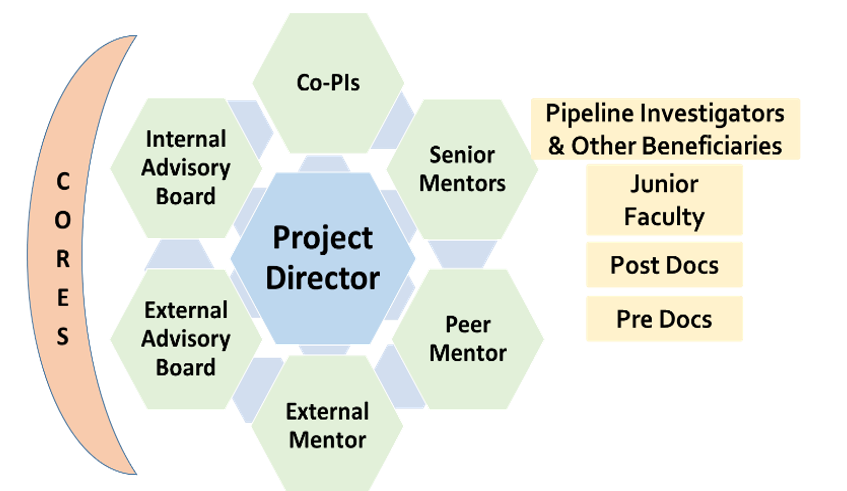- The Vermont Center for Cardiovascular and Brain Health (VCCBH) is a Center of Biomedical Research Excellence (COBRE), funded by the National Institute of General Medical Sciences of the National institutes of Health.
- The VCCBH is a vibrant research center for cardiovascular and brain health that will bring scientific and clinical advances to Vermonters, the nation, and the world.
- The goal is to propel junior faculty Project Directors to independent status through Strategic Mentoring and Faculty Development Programs supporting their conduct of research.
- Each Project Director completes research aimed ultimately at reducing the population burden of disorders related to cardiovascular and brain health, like stroke, heart disease and Alzheimer’s Disease / dementia.
- The Center has two research cores, Study Design and Molecular Epidemiology and Customized Physiology and Imaging.
- There are 33 junior investigators in the VCCBH Pipeline Development Program from five UVM colleges and 14 departments.
- The VCCBH was founded in 2020 with $12 million in NIH funding supplemented with support from UVM.
Why cardiovascular and brain health?
- Cardiovascular diseases and stroke are leading causes of death in Vermont and around the world.
- Each year 800,000 Americans have a stroke, and 720,000 have a heart attack. 75 million people worldwide will be living with dementia by 2030.
- Vermont is aging more rapidly than other states, ranking 4th in the US for proportion aged over 65 years (19.4%, predicted to increase to 28% by 2030); so the impact of cardiovascular disease, stroke and dementia is disproportionately large.
- There are ~13,000 Vermonters living with Alzheimer’s Disease (cared for by 30,000 caregivers). Vermont has the 15th highest rate of Alzheimer’s Disease in the US.
- There is increasing recognition of the connections between vascular health and brain health, including dementia and other cognitive disorders. These disorders have shared risk factors and are commonly seen together.
Organizational Framework, Strategic Mentoring Initiative
This diagram shows the Center’s Strategic Mentoring Initiative. Mentoring teams are multidisciplinary;
each Project Director has two senior mentors from different disciplines. Junior faculty who recently became independent (e.g, advanced junior faculty) serve as Peer Mentors. Each PD also has an external mentor.
Examples of studies that can be leveraged for this translational research are shown in the table.
